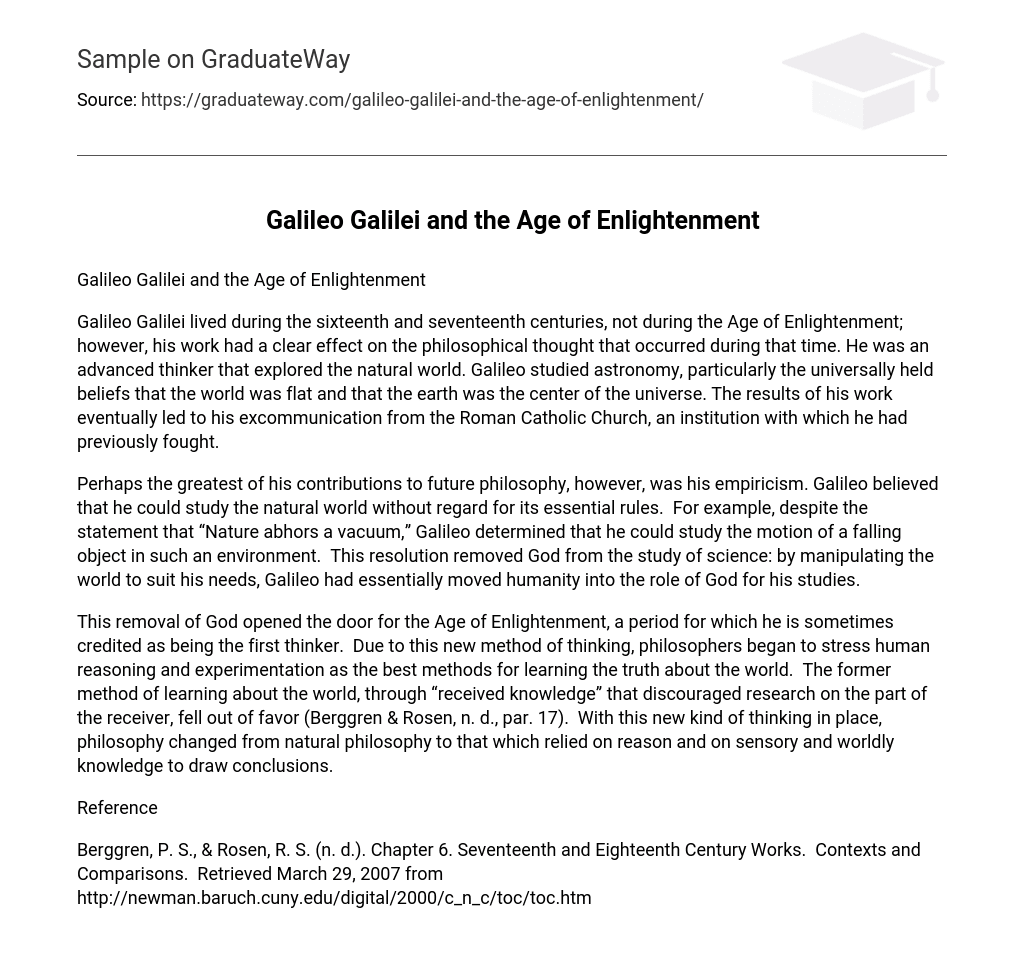Galileo Galilei lived during the sixteenth and seventeenth centuries, not during the Age of Enlightenment; however, his work had a clear effect on the philosophical thought that occurred during that time. He was an advanced thinker that explored the natural world. Galileo studied astronomy, particularly the universally held beliefs that the world was flat and that the earth was the center of the universe. The results of his work eventually led to his excommunication from the Roman Catholic Church, an institution with which he had previously fought.
Perhaps the greatest of his contributions to future philosophy, however, was his empiricism. Galileo believed that he could study the natural world without regard for its essential rules. For example, despite the statement that “Nature abhors a vacuum,” Galileo determined that he could study the motion of a falling object in such an environment. This resolution removed God from the study of science: by manipulating the world to suit his needs, Galileo had essentially moved humanity into the role of God for his studies.
This removal of God opened the door for the Age of Enlightenment, a period for which he is sometimes credited as being the first thinker. Due to this new method of thinking, philosophers began to stress human reasoning and experimentation as the best methods for learning the truth about the world. The former method of learning about the world, through “received knowledge” that discouraged research on the part of the receiver, fell out of favor (Berggren & Rosen, n. d., par. 17). With this new kind of thinking in place, philosophy changed from natural philosophy to that which relied on reason and on sensory and worldly knowledge to draw conclusions.
Reference
Berggren, P. S., & Rosen, R. S. (n. d.). Chapter 6. Seventeenth and Eighteenth Century Works. Contexts and Comparisons. Retrieved March 29, 2007 from http://newman.baruch.cuny.edu/digital/2000/c_n_c/toc/toc.htm





